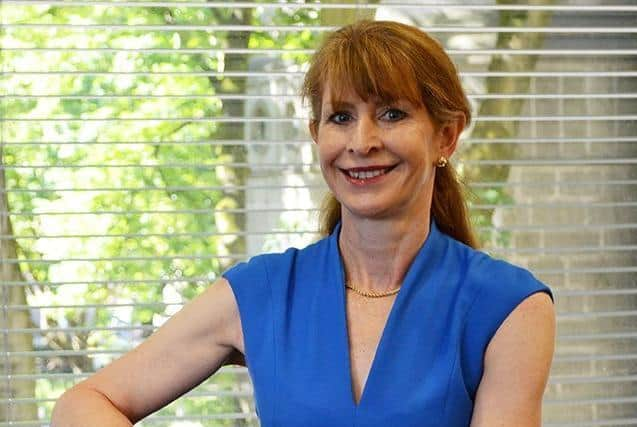Lancashire could face long-term Covid costs - but county council in "strong financial position"
and live on Freeview channel 276
Angie Ridgwell told a cabinet meeting of the authority that there was a risk of both “accelerated frailty” and greater financial hardship within the community as a result of coronavirus – even if and when a vaccine allows life to return to some semblance of normality.
However, members were presented with an assessment of County Hall’s accounts over the last financial year which suggested that the authority was starting from a stable position to face the forthcoming challenge.
Advertisement
Hide AdAdvertisement
Hide AdHad it not been for a one-off £12.5m “risk-sharing” agreement to support NHS clinical commissioning groups (CCGs) in Central and East Lancashire, then the county council would have “lived within its means” during 2019/20, Ms. Ridgwell said.


As a result of that healthcare package, the authority had to take £10.2m from its reserves to balance the books. It ended the year with a £1.7m underspend and delivered more than £53m in planned savings.
Reserves – already predicted to last beyond the four-year window within which the authority plans its finances – increased over the last twelve months and now stand at just under £150m. The rainy-day fund had previously been predicted to run dry by last year.
Against that backdrop, Ms. Ridgwell – who is also the council’s director of resources – ruled out the need for an emergency budget this year to deal with the coronavirus crisis.
Advertisement
Hide AdAdvertisement
Hide Ad“While [Covid will] have those longer-term impacts, because of our strong financial position, we anticipate having time to prepare…in a structured and considered way,” she said.
Lancashire County Council has so far received £56m from a government fund for local authorities – but last month estimated that its Covid-related costs, in both expenditure and lost income, will total at £104m.
Council leader Geoff Driver – who has repeatedly called on fellow Conservatives within government to cover the full financial impact of coronavirus on local authorities – told the meeting: “It’s reassuring to see [that] the finances are in such good order, so we can face the future with some certainty and have been able to say that the county council will do whatever is necessary to see the people of Lancashire through this current crisis.”
Across the authority’s various departments, there was a mixed picture of overspending and underspending during the last financial year.
Advertisement
Hide AdAdvertisement
Hide AdAdult social care services overshot their budget by £23m – but half of that was accounted for by the support cash directed towards the NHS. The remaining £10.7m related to the authority’s “passport to independence” programme, designed to keep people living in their own homes for longer.
Papers presented to cabinet reveal that attempts to divert individuals away from residential care have been more successful than those intended to reduce their reliance on community support. So far, £15m in savings have been achieved by avoiding or delaying admission to residential homes – but the length of that deferral averages around 37 weeks, short of the original target of a full year, which would have delivered a planned saving of £23.9m.
A further £2.3m in savings are expected to be extracted from the programme in future years, but just over £6m predicted to be generated by working with the NHS to avoid “inappropriate referrals” from hospital to residential care has now been written off as undeliverable.
Elsewhere, children’s social care services overspent by £2.9m, mainly as a result of staffing overspends and the cost of agency residential and fostering placements. However, this was more than offset by a £4.3m underspend within the children and family wellbeing service, following receipt of additional income and a reduction in staff costs.
Advertisement
Hide AdAdvertisement
Hide AdMeanwhile, lower than expected passenger income from the tendered public bus network led to a £1.1m overspend in this area and the budget for transporting pupils with special educational needs and disabilities was also exceeded by £1.6m – partly as a result of increased inflation and numbers of children using the service and also because of a missed savings target in relation to increasing independent travel.
Comment Guidelines
National World encourages reader discussion on our stories. User feedback, insights and back-and-forth exchanges add a rich layer of context to reporting. Please review our Community Guidelines before commenting.